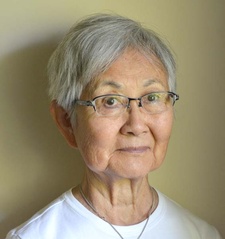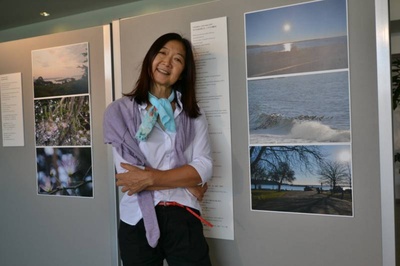I can’t imagine coming through a more turbulent year than 2011.
On March 11th, everything changed and nobody that I know in the Tohoku area of Japan is unscathed. Friends there still have an unease and certain sense of disbelief in their voices as though surviving the cataclysm was some sort of miracle, which it was.
The volunteerism that called many friends to help in Japan throughout 2011 planted the idea for this article some months ago. Another reason why I chose to focus on this theme is that our communities simply need more volunteers.
In my more than 15 years of involvement with the Toronto Nikkei community, mostly as a contributor to the Nikkei Voice, I have seen many volunteers come and go. A handful have been with the paper since its inception like Terry Watada and Frank Moritsugu. And, I am heartened to see new bylines from youngsters like Lindsay Tsuji and Natalie Higashi too.
So, what does becoming a volunteer mean? It is finding time out of our busy schedules to help out a community outside of our own self interests, without the expectation of any reward.
Like the JCCC in Toronto I suspect that there is a core of retired seniors across Canada too who work to keep all of our JC centers going. Without their commitment, they simply wouldn’t exist.
After World War Two, JCs were scattered across Canada. While we will never have another community like Powell Street ever again there is no reason why we cannot enjoy knowing one another again. Sansei and Yonsei who have grown up separate from other Nikkei now may be looking for ways to get reconnected in some way to the community that was stolen away from our parents and grandparents.
The personal pay off was that I began to understand a lot more about myself when I started to talk with the Nisei and study about my connection with our history and Japan.
On becoming the Toronto NAJC Vice President
In December, 2011 I was asked to run for the Toronto NAJC vice presidency. One of the main factors that made me step forward was seeing senior volunteers like Toku Suyama, Terez Hyodo, Bill and Addie Kobayashi who have been helping the community for decades, step up yet again.
This was a poignant reminder of the remarkable volunteers in New Denver, B.C. who I got to know in the early 1990s, including pre-war Japanese teacher Chie Kamegaya, Pauli Inose, “Sockeye” and Bronwyn Hashimoto, Ruby Truly, Nobby Hayashi, Kay Takahara, Koko and Paul and many others. The Nikkei there have a respected place in the community because of their active involvement in making it a better place to live. When I lived in South Slocan, B.C. in 1994, I was a frequent visitor to New Denver and was lucky enough to have been at the opening of the Nikkei Internment Memorial Centre and, sadly, at Kamegaya sensei’s funeral shortly thereafter. Volunteerism is at the core of that community’s success.
In 2011, two JC volunteers whose work I grew to admire were Vancouver’s Linda Ohama and Delta, B.C.’s Mary Keiko Kitagawa.
Mary, 77, led the remarkable Canada-wide effort in 2011 to pressure the University of British Columbia to award ‘special’ degrees to the 76 Nisei who were not able to complete their education because of internment.
“Without volunteers,” she writes, “there won’t be a visible Nikkei community retaining its history and educating the broader community about our past and present. One only has to look in the JCCA Bulletin and the Nikkei Voice to see all the people who keep the JC community vibrant, alive and meaningful. Some of the examples in Vancouver are Ron Nishimura and his GVJCCA board, Tonari Gumi, President and Board of Nikkei Place, Japanese language schools, Powell Street Festival and hundreds of people who quietly work behind the scene. “
And, she reminds us: “The power of volunteers brought about the success of the Redress movement.”
Linda writes from Onomichi: “As a woman with three daughters and two granddaughters, volunteering is not only trying to create a more thoughtful world but helping to demonstrate that women and young people have an important role and power to fulfill humanitarian work/needs to help make this a better world for many more people.”
“Growing up as a prairie girl from the farm country, I remember a time when a farmer in the next community had a fire. His big haystack burned to the ground destroying the crop he had grown and harvested to feed his livestock during the prairie winter. A few days later, his mountain of stacked rectangle hay bales reappeared. Without much word, a string of farmers around the district loaded some bales in their trucks and added their bales to rebuild the burned down stack. It seemed just part of the routine of being a local farmer. No one says you HAVE to do it, you just do it. That’s all.”
© 2012 Norm Ibuki







